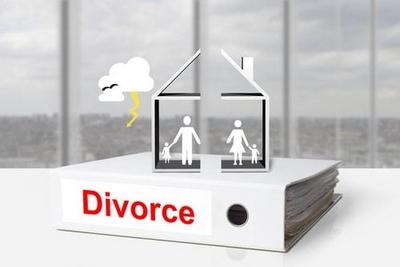Recent Blog Posts
What Is Marital Property?
 In some states, divorcing spouses are entitled to an equal share of their “community property.” This, however, is not the case in Illinois. Illinois and 40 other states are considered “equitable distribution” states, which means that the marital property of a divorcing couple must be divided fairly between the spouses, not necessarily equally. While determining what is fair can be quite complicated, the process begins with identifying what property is considered marital and what is considered non-marital for the purposes of the divorce.
In some states, divorcing spouses are entitled to an equal share of their “community property.” This, however, is not the case in Illinois. Illinois and 40 other states are considered “equitable distribution” states, which means that the marital property of a divorcing couple must be divided fairly between the spouses, not necessarily equally. While determining what is fair can be quite complicated, the process begins with identifying what property is considered marital and what is considered non-marital for the purposes of the divorce.
Illinois Law
Most of the statutes that govern the divorce process in Illinois are contained in the Illinois Marriage and Dissolution of Marriage Act (IMDMA). The IMDMA expressly defines marital property as “all property, including debts and other obligations, acquired by either spouse subsequent to the marriage” with several important exceptions. These exceptions include but are not limited to:
Co-Parenting Strategies for Divorced Parents
 If you are a parent who is considering divorce, you are most likely concerned about how the divorce will affect your child. While divorce can be a difficult concept for a child to understand and accept, there is nothing that says a child living with divorced parents will automatically be less fulfilled or content in life than a child whose parents are still married. There are several methods that parents can use to share custody of their children after a divorce which do not decrease the quality of the parent-child relationship.
If you are a parent who is considering divorce, you are most likely concerned about how the divorce will affect your child. While divorce can be a difficult concept for a child to understand and accept, there is nothing that says a child living with divorced parents will automatically be less fulfilled or content in life than a child whose parents are still married. There are several methods that parents can use to share custody of their children after a divorce which do not decrease the quality of the parent-child relationship.
Traditional Two-House Arrangement
The most common arrangement after parents divorce is for one parent to stay in the family home and the other to move out. Sometimes both parents move out of the family home and establish themselves as a single people elsewhere. Parents can share parental responsibilities (formerly called custody) and parenting time (visitation) by creating a schedule which works with their particular circumstances. Some families find that an every-other weekend visitation schedule is best while others prefer closer to fifty-fifty when it comes to parenting time.
Collaborative Divorce as an Alternative to Litigation
 Many individuals getting a divorce want the process to run as smoothly and quickly as possible. For some, this means that they want to avoid court. Litigation in a courtroom can be expensive, time-consuming, and stressful. Collaborative law is a method of problem-solving which is available to some divorcing couples. Through the collaborative law process, divorcing couples have the opportunity to exert much more control over the final divorce decree than they would have otherwise.
Many individuals getting a divorce want the process to run as smoothly and quickly as possible. For some, this means that they want to avoid court. Litigation in a courtroom can be expensive, time-consuming, and stressful. Collaborative law is a method of problem-solving which is available to some divorcing couples. Through the collaborative law process, divorcing couples have the opportunity to exert much more control over the final divorce decree than they would have otherwise.
How Does Collaborative Law Work?
Collaborative law is one way to resolve disagreements between divorcing individuals outside of the courtroom. Those engaging in a collaborative law divorce should be focused on working with their soon-to-be-ex-spouse instead of fighting against him or her. Collaborative law is not without its requirements and rules. In order to proceed with a collaborative divorce, each spouse must retain his or her own attorney, who must be trained and certified in collaborative law. The attorneys help the parties understand their options and choose the best course of action for their unique circumstance. Another rule for collaborative law is that neither spouse may go to court. If the couple finds it necessary to go through traditional courtroom litigation, the collaborative law process ends and the attorneys involved in the collaboration are disallowed from further involvement in the case.
The Benefits and Limitations of a Prenuptial Agreement
 The idea of creating and signing a prenuptial agreement, or “prenup” before getting married is an idea which has been gaining popularity in recent years. Although prenuptial agreements have been long associated with frivolous celebrity weddings, the truth is that prenuptial agreements, or premarital agreements, are very valuable legal tools from which any couple can benefit.
The idea of creating and signing a prenuptial agreement, or “prenup” before getting married is an idea which has been gaining popularity in recent years. Although prenuptial agreements have been long associated with frivolous celebrity weddings, the truth is that prenuptial agreements, or premarital agreements, are very valuable legal tools from which any couple can benefit.
How a Prenup Can Help You and Your Fiancé
If you have just gotten engaged, probably the last thing you want to think about is the possibility that your relationship may not last forever. It is true that prenuptial agreements are largely created to protect each spouse’s financial interests in the event the marriage ends in divorce, but that is far from the only benefit prenuptial agreements can offer a new couple. Prenuptial agreements have many purposes including:
- Outlining the way a family business will be managed and divided if the marriage ends;
Orders of Protection FAQs
 Home is the one place everyone should feel safe. Sadly, for those people who are victims of domestic violence, home is often the last place they want to be. Intimate partner violence affects one out of every three women and one in four men. Fortunately, there are legal steps a person in an abusive relationship can take to secure their safety and that of their children. An order of protection, sometimes referred to colloquially as a restraining order, is one of these steps.
Home is the one place everyone should feel safe. Sadly, for those people who are victims of domestic violence, home is often the last place they want to be. Intimate partner violence affects one out of every three women and one in four men. Fortunately, there are legal steps a person in an abusive relationship can take to secure their safety and that of their children. An order of protection, sometimes referred to colloquially as a restraining order, is one of these steps.
Who Should Get an Order of Protection?
If you fear for your safety or the safety of your children because a romantic partner or other close family member is threatening or actively abusing you, an order of protection may be the right first step in escaping that toxic relationship. Domestic violence can look different from case to case but some of the most common tactics abusers use include:
How to Keep Divorce Costs Manageable
 A divorce is never easy. If your marriage is ending, you are likely to feel angry and hurt, as well as betrayed by the very person with whom you once wanted to spend the rest of your life. Emotions such as these may make you want to dig in your heels and fight against your partner over every little issue. Unfortunately, doing so will probably cost much more than you are prepared to spend on your divorce. There are, however, some things you can do to keep the cost of your divorce to manageable levels.
A divorce is never easy. If your marriage is ending, you are likely to feel angry and hurt, as well as betrayed by the very person with whom you once wanted to spend the rest of your life. Emotions such as these may make you want to dig in your heels and fight against your partner over every little issue. Unfortunately, doing so will probably cost much more than you are prepared to spend on your divorce. There are, however, some things you can do to keep the cost of your divorce to manageable levels.
Where Costs Add Up
Some of the expenses related to your divorce are simply unavoidable, such as court fees. You may also experience additional costs in setting up a new place to live apart from your spouse. The bulk of your expenses, however, will come in the form of attorneys’ fees and fees charged by other professionals involved in your case. The more complex and contentious your case is, the more you will need to pay.
What Rights Do Unmarried Parents Have?
 The allocation of parental responsibilities, commonly called child custody, can be a complicated part of family law. When a couple who is unmarried has a child, there are different rights and responsibilities applied to each parent than if the couple is married. For example, a woman who gives birth to a child immediately has custody of that child. If an unmarried father wishes to claim legal paternity of the child, he must do so through one of several established ways.
The allocation of parental responsibilities, commonly called child custody, can be a complicated part of family law. When a couple who is unmarried has a child, there are different rights and responsibilities applied to each parent than if the couple is married. For example, a woman who gives birth to a child immediately has custody of that child. If an unmarried father wishes to claim legal paternity of the child, he must do so through one of several established ways.
Rights and Responsibilities of Unmarried Mothers
Mothers are automatically considered the primary custodian of a child they bear. This means that they have authority over decisions related to their child’s welfare as well as the responsibility to care for the child. More specifically, they have the right to make decisions about school, childcare, geographical moves, healthcare, religious affiliation, sports, summer camps, travel, and other aspects of the child’s life. It should be noted that there are some extreme cases in which a mother does not get custody of a child she gives birth to. For example, mothers who were found to have been using illegal drugs while pregnant can be disallowed immediate physical or legal custody of their child.
How to Handle a Divorce with a Hostile Spouse
 While all divorces are stressful and time-consuming to some extent, some divorces are more complex than others. One example of a highly complex divorce is one in which one spouse simply refuses to cooperate. He or she may attempt to hide assets in order to be awarded more of the marital property or tell lies about the other spouse in order to slow the divorce process or gain custody of children. In high-conflict divorces, spouses engage in hostile confrontation instead of legal negotiation about issues like spousal maintenance, child support, parenting time, or property division. High-conflict divorces require an attorney who is experienced at finding solutions to seemingly-unsolvable problems. In addition to hiring a dedicated attorney, spouses in the midst of a high-conflict divorce may find relief through the following suggestions.
While all divorces are stressful and time-consuming to some extent, some divorces are more complex than others. One example of a highly complex divorce is one in which one spouse simply refuses to cooperate. He or she may attempt to hide assets in order to be awarded more of the marital property or tell lies about the other spouse in order to slow the divorce process or gain custody of children. In high-conflict divorces, spouses engage in hostile confrontation instead of legal negotiation about issues like spousal maintenance, child support, parenting time, or property division. High-conflict divorces require an attorney who is experienced at finding solutions to seemingly-unsolvable problems. In addition to hiring a dedicated attorney, spouses in the midst of a high-conflict divorce may find relief through the following suggestions.
Focus on the Future and Let Go of the Past
Complex divorces, like those which involve a totally uncooperative spouse, can be laborious. In addition to the legal processes that may need to take place, there is also a lot to process emotionally. Many spouses going through a high-conflict divorce are absolutely shocked that the person they once loved could purposely make their lives so difficult. Experts suggest that anyone ending their marriage allow themselves to grieve. Divorce is not unlike the death of a spouse in that although the other spouse is not technically gone, he or she may act like a completely different person once faced with divorce. Many divorcing individuals find that therapy helps them to grieve the end of their marriage and the loss of their partner.
How to Handle Post-Divorce Loneliness
 If you have been considering divorcing your spouse, you probably have many fears and concerns about how this will affect your life. Going from being a part of a married couple to being a single person is a difficult transition – especially for those who have been married for a long time. Some unhappy spouses end up staying in a marriage they are not happy in simply because they are afraid of being alone. Fortunately, there are ways that you can help alleviate post-divorce loneliness.
If you have been considering divorcing your spouse, you probably have many fears and concerns about how this will affect your life. Going from being a part of a married couple to being a single person is a difficult transition – especially for those who have been married for a long time. Some unhappy spouses end up staying in a marriage they are not happy in simply because they are afraid of being alone. Fortunately, there are ways that you can help alleviate post-divorce loneliness.
Do Not Hesitate to Ask for Help
Divorce is one of the most stressful life events that exist. In fact, according to the Holms-Rahe Stress Inventory, it is second only to the death of a spouse in terms of the stress it brings. However, as many people can attest, staying in an unhappy marriage can be equally stressful. Do not be afraid to ask for help. Many people who get divorced find that joining a divorce support group or employing the help of a therapist greatly helps them navigate post-divorce life.
Negotiating a Spousal Maintenance Agreement
 The decision to get a divorce is among the hardest you will ever have to make. The process of divorce will likely present a large number of considerations for you to address. You and your spouse will need to decide who will get what assets, how you will parent your children after the divorce, and how to create new lives for yourselves. In many divorce cases, maintenance—also called spousal support or alimony—can be especially difficult to determine. It is impossible to place a value on your marriage, but the reality is that if one of you will struggle to make ends meet while the other is financially stable, maintenance may be necessary. If necessary, the court can make decisions about spousal support, but you and your spouse can also develop your own agreement that meets your needs while avoiding contentious courtroom proceedings.
The decision to get a divorce is among the hardest you will ever have to make. The process of divorce will likely present a large number of considerations for you to address. You and your spouse will need to decide who will get what assets, how you will parent your children after the divorce, and how to create new lives for yourselves. In many divorce cases, maintenance—also called spousal support or alimony—can be especially difficult to determine. It is impossible to place a value on your marriage, but the reality is that if one of you will struggle to make ends meet while the other is financially stable, maintenance may be necessary. If necessary, the court can make decisions about spousal support, but you and your spouse can also develop your own agreement that meets your needs while avoiding contentious courtroom proceedings.
Commitment to Cooperation
Anyone who says that divorce is easy is either lying or trying to sell you something. Divorce is almost always challenging, but more couples than ever before are approaching the process with a spirit of cooperation. In cases such as these, the spouses may have realized that their lives are better apart, but they still love and care for their partners and do not have any desire to create unneeded problems. If this describes your situation, you will probably be able to come to an agreement on maintenance quickly, efficiently, and without added stress.











 630-352-2240
630-352-2240



